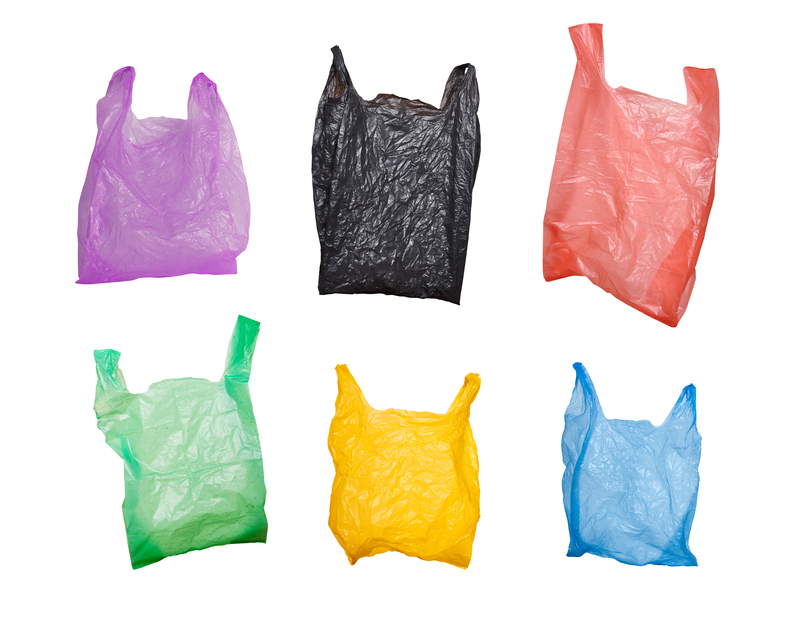Embrace Stress Relief Through Effective De-cluttering
Stress has become an unwelcome companion for many of us, infiltrating our homes and affecting our minds. However, did you know that your living environment plays a significant role in your stress levels? Embracing stress relief through effective de-cluttering can truly transform your mental well-being and create a haven of peace. If you're ready to discover how to de-clutter your surroundings while nurturing your mind, read on. This comprehensive guide covers the benefits, strategies, and long-term rewards of adopting a clutter-free lifestyle.

Why Decluttering is Essential for Stress Relief
Our homes are more than just physical spaces; they're an extension of our emotional state. A cluttered environment can make you feel overwhelmed, anxious, and trapped. Embracing stress relief with efficient decluttering means freeing your space and mind from excess baggage. Here's why:
- Clutter demands attention. Every misplaced item competes for your focus, making relaxation nearly impossible.
- Mental clarity suffers. Visual chaos leads to mental chaos, hindering your ability to think clearly.
- Emotional weight increases. Items you no longer use or love can harbor guilt, regret, or sadness.
- Productivity drops. Searching for essentials amidst clutter wastes precious time and energy.
- Stress hormones escalate. Studies reveal that disordered spaces elevate cortisol (the stress hormone) levels.
Organizational stress relief strategies target these factors, providing a powerful antidote to the anxiety swirling in a cluttered room.
The Psychological Impact of Clutter
Have you ever walked into a tidy space and instantly felt lighter or found yourself distracted in a messy office? That's the psychological impact of clutter at work. Research from Princeton University confirms that an environment overloaded with stuff pulls our attention in multiple directions, which restricts our ability to concentrate.
Chronic exposure to clutter:
- Contributes to stress and fatigue
- Reduces satisfaction with your life and home
- Augments feelings of anxiety and helplessness
Declutter for mental peace. Simplifying your space can improve your mood and boost your productivity, creating a more enjoyable living environment.
Beginners' Guide to Effective Decluttering
Ready to embrace stress relief with thorough de-cluttering techniques? Here's a step-by-step guide for beginners.
1. Set Small, Achievable Goals
_Decluttering an entire house can seem overwhelming. Instead, break it down: _
- Start with a single drawer, shelf, or surface.
- Schedule 10-30 minutes a day for decluttering sessions.
- Reward yourself after each small victory to reinforce progress.
2. Adopt the Four-Box Method
Label four boxes: Keep, Donate, Toss, and Relocate. As you sort through items:
- Keep: Only what is essential, useful, or truly meaningful.
- Donate: Items in good condition that you no longer need.
- Toss: Anything broken, expired, or unusable.
- Relocate: Items that simply belong in another room.
3. Prioritize High-Traffic Areas
Focus first on areas that impact your daily life the most--your kitchen, living room, entryway, and bedroom. By quickly improving these spaces, you'll feel the calming effects of de-cluttering for stress relief right away.
4. Implement the One-In, One-Out Rule
To prevent clutter from creeping back in, commit to removing one item for every new thing you bring home. This simple rule helps maintain your newly organized environment.
5. Make Decluttering a Regular Habit
_Schedule routine decluttering sessions--weekly, monthly, or seasonally--to avoid future stress. It's easier to keep things under control than to tackle a huge mess all at once._
Mindful Decluttering for Enhanced Stress Relief
Effective de-cluttering isn't just about organizing your home for stress relief; it's also about letting go of emotional attachments. Here's how to embrace mindful decluttering:
Ask Key Questions for Every Item
- Does this item bring me joy, or weigh me down?
- Have I used it in the past year?
- Is it serving a real purpose in my life?
When you intentionally choose what stays in your space, you also practice letting go of what no longer serves you--physically and emotionally.
Release Guilt and Just-In-Case Thinking
Holding on to items out of guilt ("It was a gift") or fear ("I might need this someday") can silently sabotage your stress-reducing decluttering process. Acknowledge the sentiment behind the object and grant yourself permission to move forward.
Enlist Mindful Practices During Decluttering
Try these techniques as you clear out your space:
- Play calming music to keep your mood upbeat.
- Practice deep breathing or mindfulness meditation before, during, and after sessions.
- Invite a supportive friend to help keep you motivated and grounded.
Decluttered Spaces: How They Reduce Stress & Improve Mental Health
A well-organized environment reduces unnecessary visual stimuli, sending signals of calm and control to your brain. Let's explore the core benefits of effective stress-relief decluttering:
- Lower anxiety levels: Simplicity breeds serenity, quelling racing thoughts and worries.
- Restful sleep: A tidy bedroom promotes relaxation, improving sleep quality.
- Boosted energy: Fewer distractions and streamlined routines free up physical and mental energy.
- Enhanced focus: Orderly environments increase clarity and productivity.
- Elevated self-esteem: Successfully re-taking control of your space fuels confidence and empowerment.
- Improved relationships: Peaceful, welcoming homes foster positivity among family and friends.
How Does Clutter Affect Your Brain?
Researchers have found that too many visual stimuli (like piles of papers, overflowing countertops, or chaotic closets) trigger your brain's fight--or-flight response, ramping up stress hormones. By de-cluttering for peace of mind, you're signaling to your nervous system that everything is under control.
Decluttering Routines and Systems: Keep Stress Away for Good
To fully embrace long-term stress relief through decluttering, establish simple, sustainable systems for ongoing organization.
Daily 5-Minute Reset
Spend just 5 minutes each morning or evening putting things back in their place. Consider making this a family or roommate ritual to share the responsibility.
Weekly Clutter-Roundup
Once a week, walk through each room with a basket to collect stray objects--return, donate, or toss as needed. This prevents clutter from accumulating unnoticed.
Organizational Tools for Stress-Free Spaces
- Storage bins and baskets: Ideal for grouping similar items and reducing visual chaos.
- Labels: Make finding and returning items a breeze.
- Shelving units: Maximize vertical space for books, decor, or pantry goods.
Declutter Different Spaces for Maximum Stress Relief
Every room has unique stress triggers. Here's how to tackle stress relief decluttering area by area:
1. Bedroom
- Clear nightstands and dressers of non-essentials.
- Keep only what supports restful sleep nearby (e.g., books, lamp, water).
- Edit your wardrobe, donating or tossing what no longer fits or brings joy.
2. Kitchen
- Store utensils and gadgets based on frequency of use.
- Purge expired food and create dedicated zones for snacks, meal prep, etc.
- Streamline your countertop to a few essentials for easy access.
3. Home Office
- Sort papers weekly--file, shred, or recycle promptly.
- Use trays or organizers for supplies; limit desk items to daily use.
- Digitize documents to reduce paper clutter and save space.
4. Living Room
- Store remote controls, chargers, and magazines in labeled containers.
- Tame toy or hobby clutter with baskets or storage ottomans.
- Regularly review decor to keep only what you love and use.
Decluttering Tips for Lasting Stress Relief
- Don't strive for perfection. Progress over perfection creates sustainable habits.
- Let go of comparison. Your home is unique--organize for your real needs, not magazine standards.
- Ask for help. Professional organizers, friends, or family can provide motivation and fresh perspectives.
- Celebrate milestones. Take before-and-after photos and acknowledge your efforts to reinforce positive changes.
The Science Behind Stress-Relief Decluttering
Multiple studies back the transformative power of clutter-free living for mental well-being:
- A 2016 study from the University of New Mexico found that people with tidier homes reported higher life satisfaction.
- UCLA researchers discovered that mothers living in cluttered environments had higher levels of depressed mood and cortisol.
- Environmental psychology experts note that organized spaces foster relaxation, creativity, and focus.
Starting Your Stress Relief Through Decluttering Journey
Ready to reclaim your calm? Here's a practical checklist to embrace stress relief through effective decluttering starting today:
- Set clear intentions for why you want to declutter--write them down!
- Begin with easy wins (drawers, counters, or closets).
- Work alongside music or a podcast to make the process enjoyable.
- Involve your household for extra hands and accountability.
- Celebrate progress, not perfection.

Conclusion: Live Lighter and Stress-Free
Embracing stress relief through effective de-cluttering is about much more than cleaning up your space--it's about nurturing your mind, reclaiming your time, and creating a sanctuary of calm for yourself and your loved ones. When your environment is organized, your thoughts can settle, your worries diminish, and you're free to enjoy life's simple pleasures without distraction or anxiety.
Start small. Stay committed. And most importantly, cherish the newfound peace that an uncluttered life brings!